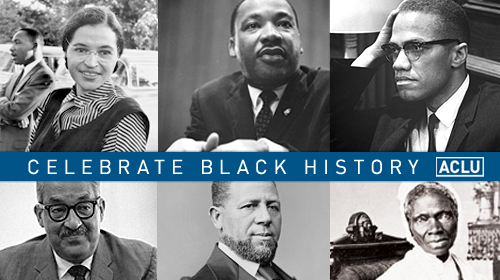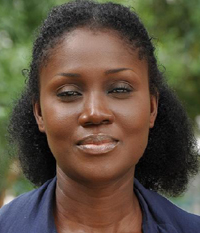
In the late 70s, my father and several other men in Liberia were tied together at the neck and brutally flogged for hours in public. It was a humiliation reminiscent of slavery days that stung all the more because these men were descendants of ex-slaves. Understandably, my father vowed never to return to Liberia when he emigrated to the U.S. in 1978.

Tori Mends-Cole is a Communications Coordinator at the national ACLU in Washington, D.C. She joined the ACLU after serving as adjunct faculty at DC area private colleges teaching Public Speaking, Communication Theory, Intercultural Communication, Analytical Thinking and Career Skills courses. Tori has a M.A. in Communication from the University of Maryland at College Park. She is of Americo-Liberian and Grebo heritage.
By 1989, when a small rebel force invaded the northern tip of Liberia; I had already worried myself through several coups d'etat to overthrow the government. This latest attempt, however, led to a 14-year civil war that would decimate a beautiful country. The descendants of freed slaves would again be in the cross-hairs.
In more ways than one, the history of Black Americans is a living history that spans continents. Not only is Black History Month an acknowledgement and celebration of the obstacles that Blacks overcame to thrive in American society, it is also an educational tool for Americans to learn the living history of the Blacks who returned to Africa in search of liberty and equality.
As early as the 1820s, Blacks who were skeptical about equal treatment in America volunteered or paid passage to return to the west coast of Africa to form a society where ex-slaves could live freely in a sovereignty of their own. Both professional and skilled Blacks were eager to go to Africa, and Samuel F. McGill, a doctor (and my great-great grandfather), was among the first arrivals in 1827. Among the whites who supported the repatriation was James Monroe, the fifth U.S. president for whom the Liberian capital city of Monrovia is named. He genuinely believed Blacks would fare better in their own society. So did Thomas Jefferson, who was opposed to racial mixing and wanted to stop free Blacks from encouraging slave rebellions.
After a long and arduous trip across the Atlantic, the settlers, who became known as Americo-Liberians, faced disease, harsh climates, lack of food and medicine and violent attacks from indigenous tribes. Centuries of suffering had trained these settlers to persevere and they chronicled their successes in letters that they wrote to family, friends and former slave owners in America. The Americo-Liberians who were often racially mixed were easily discernible from the indigenous people because of their coloring, culture and education; their ties to America helped them create the world's largest rubber plantation servicing Firestone and the second largest maritime registry.
Americo-Liberians had absolute power in Liberia, even instituting an American-like government that included discrimination and disenfranchisement of tribal people. And, they learned the same bitter lesson they had taught their white oppressors.
Today, a Liberian woman of both tribal and Americo-Liberian heritage is serving her second term as the president of Liberia; we have come a long way. Although the tie to America is weakening and few Black Americans feel kinship to Liberia, the country's motto, "The love of liberty brought us here," still drives policies now designed to ensure equal treatment for all, not just descendants of ex-slaves. The struggle to rebuild Liberia and redefine all Liberians as ambassadors of equal treatment prompted my father to go back to Liberia in 2009; he fell back in love with his home.
Many Americans plan trips to visit Africa in search of their heritage. They often end up in Senegal's La Maison Des Esclaves or the Slave House and the opportunity to walk among true African-Americans in Liberia is missed. As part of American history, Liberia is significant in showing that Blacks gained achievements out of nothing. As part of Black history, Liberia is a glorious land of liberty that is also home.
This blog post is one of several personal testimonials written by ACLU staff members to commemorate Black History Month.
Do you know who’s pictured in our Celebrate Black History logo? Top row, from left to right: Rosa Parks, Martin Luther King, Jr. and Malcolm X. Bottom row, from left to right: Thurgood Marshall, Hiram Rhodes Revels and Sojourner Truth.
Learn more about racial justice: Sign up for breaking news alerts, follow us on Twitter, and like us on Facebook.



